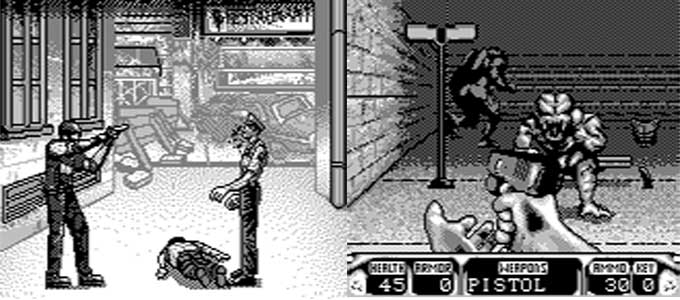This page may contain one or more affiliate links, which means that if you purchase a product through that link, I may receive compensation. The links will be identified with the text "affiliate link". Click to learn more.
I remember in the late 90s, a portable game console began to get marketed called Game Com (or Game Dot Com, because it would have a dot between the words when printed). I wanted this this thing really, really bad because it could connect to the internet and had cool games like Duke Nukem 3D on it. A portable Duke Nukem 3D in 1997?! “How was that possible?” I thought. Well it turns out, it wasn’t.
Game Com was terrible. The first red flag should have been that it was made by Tiger Electronics, known for making throw-away LCD games that would borrow the names of better games that already exist, like Double Dragon, and lure your grandma into accidentally buying you the worst birthday gift ever. The Game Com was supposed to have internet capability, which at the time would have been crazy-aweseome… if it were true. It turned out that you had to buy their external brick-sized modem that basically allowed you to upload game scores and not much else. Well I guess you had limited web connectivity as well, if you wanted to buy the cartridge for it. But before you can go online, you also need to subscribe to their exclusive internet provider. Sigh.
But what about the games? It advertised games like Mortal Kombat, Resident Evil and Duke Nukem. Surely it must have been more powerful than its competitor, the Game Boy, right? I mean, some of the games like Duke Nukem 3D were in… 3D. Well it turned out, it was a bunch of hog wash. Duke Nukem 3D especially was nothing like its original PC version, except for some graphic and sound swipes. The Game Com’s version of Resident Evil 2 was a 2D game with no music and controls so bad that zombies would attack you as you would struggle to orient the character and aim the gun.
Despite what I said, Game Com continues to be a collectable due to how fascinating the device was. It had touch screen support with a built-in organizer and the game Solitaire. The fact that it attempted to have any sort of internet connectivity is also interesting. If Tiger had decided to bring some third-party developers on board instead of trying to pocket all the cash by doing it all themselves, things may have been different.
If you are interested in the device, Amazon (affiliate link) has a few floating around. Did you have a Game Com? Leave me a comment below and tell me what you thought of it.

